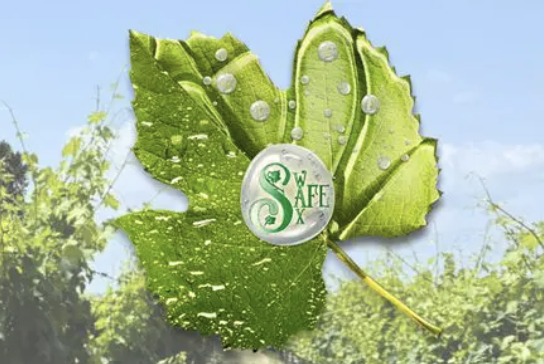Afrique du Sud : BioBee (Israël) va envoyer 160 millions de guêpes pour combattre des parasites

[:fr]L’Afrique du Sud a signé un contrat de 24 millions $ avec la société israélienne BioBee pour la livraison de 160 millions de guêpes tueuses afin d’aider les agriculteurs à se débarrasser des parasites de façon naturelle, notamment sur les tomates. Les guêpes vont être déployées dans les vignobles et les vergers à travers l’Afrique du Sud, ce qui va réduire considérablement l’utilisation de pesticides toxiques. Les guêpes vont lutter contre les cochenilles, des insectes minuscules qui ravagent les cultures. BioBee a mis au point un système biologique exempt de produits chimiques qui utilise des insectes prédateurs pour attaquer et tuer les insectes nuisibles.
Selon BioBee, sa solution est un bon investissement pour les agriculteurs, et une excellente alternative aux pesticides chimiques qui sont limités par les lois internationales. Les experts plaident depuis longtemps pour une diminution de l’utilisation de pesticides chimiques agressifs afin de préserver la santé publique. En outre, les pesticides nuisent à l’environnement en polluant l’eau et l’air, car ils sont facilement transportés par le vent.
Cette méthode a été testée en Israël et a donné des résultats impressionnants, selon BioBee. Sur les cultures de poivrons, elle a réduit l’utilisation de pesticides de 75% et de 80% sur les cultures de fraises.
Avec ces 160 millions de guêpes israéliennes qui vont protéger naturellement les tomates (et d’autres cultures), les produits locaux vont devenir beaucoup plus sains. Cela va contribuer à un environnement plus propre.
Un porte-parole de BioBee a indiqué au site NoCamels que le coût de 1000 guêpes est de 150$. Cette commande de guêpes repose une joint-venture avec une autre société israélienne, Hishtil, qui pilote plusieurs pépinières en Afrique du Sud depuis près d’une décennie. Selon la compagnie, 50% des tomates vendues en Afrique du Sud ont été cultivées par des entreprises israéliennes.
Les solutions de BioBee sont déjà utilisées par des exploitations agricoles dans 50 pays, dont la Russie et la Colombie, où BioBee a récemment livré un total de 1,1 milliard d’acariens prédateurs. Fondée en 1984 au kibboutz Sde Eliyahu, BioBee produit en masse des ennemis naturels des insectes nuisibles en élevant des araignées, des mouches, des guêpes et des abeilles.
Traduction adaptation Esther Amar fondatrice d’Israël Science Info
Source nocamels[:en]South Africa went so far as to pay Israeli company BioBee $24 million for 160 million killer wasps to help its farmers get rid of pests – the natural way.
The wasps are being deployed in vineyards and orchards across South Africa, significantly reducing the need to use harmful pesticides. The wasps will primarily combat mealybugs, tiny insects that can ravage crops.
A company spokesperson tells NoCamels that the cost of 1,000 wasps is $150, which means South Africa poured $24 million on the critters. By employing predatory bugs that attack and kill harmful insects, BioBee Biological Systems has developed a technique free of chemicals. Already, the company’s solutions can be found on farms across 50 countries, including Russia and Colombia, where BioBee recently shipped a total of 1.1 billion ‘predatory’ spider mites.
The natural enemies of harmful pests
Founded in 1984 in Kibbutz Sde Eliyahu, BioBee’s facility mass-produces the natural enemies of harmful pests by harvesting spiders, flies, wasps and bees for various purposes.
How does the system work? BioBee ships the wasps when they are still at the pupa stage. The larva evolves into a wasp inside the cocoon, which was previously mixed with mealybugs by BioBee. In the process of becoming an adult wasp, the critter eats the insides of the mealybug, whose body protects the maggot.
Simply put, the wasps’ larvae live inside the mealybug as parasites, but they eventually kill their hosts. After the farmer places the cocoons on the plants, and as the wasps emerge, they continue to feed on the mealybugs and their offspring go on to combat these pests as well.
Mealybugs on a flower stem
“The subsequent established generations of the wasps will effectively control the mealybugs in the longer run,” BioBee said in a statement. “The parasitic wasp is highly valuable as a mealybug control agent in South Africa, reducing infestation levels of both the citrus mealybug and vine mealybug. It also increases the percentage of marketable yields of both citrus fruits and grapes.”
Combating super-bugs
According to BioBee, its solution is a good investment for farmers, who may otherwise be limited in exporting crops that were sprayed with chemical pesticides, which are restricted by international laws.
Experts have long advocated for a decrease in the use of aggressive chemical pesticides, to benefit public health. In addition, pesticides damage the environment, pollute the water and air in their surroundings, as they are easily carried by the wind.
Another reason to reduce the use of pesticides is that, with time, pests develop resistance to pesticides. This encourages farmers to use more and more pesticides, while generations of powerful super-bugs proliferate.
The alternative provided by BioBee is inspired by what is called in the scientific literature “the biological control phenomenon,” which is the natural balance of the “good bugs” eating the “bad bugs.”
The impact of this method has been measured on crops in Israel, yielding impressive results, according to BioBee: On sweet pepper crops, it reduced the use of pesticides by 75 percent; and on strawberry crops, they were reduced by 80 percent.
Every other tomato is Israeli
The current shipment of wasps is a joint venture with another Israeli company, Hishtil, which has been operating several nurseries in South Africa for nearly a decade. According to the company, 50 percent of the tomatoes sold in South Africa were grown by Israeli enterprises.
With the 160 million Israeli wasps naturally protecting these tomatoes (and other crops), local produce is bound to become much healthier and contribute to a cleaner environment.
Source nocamels
——————————————————
Read also
« The Integrated Control in Protected Crops Meeting When Natural Solution Meet Growers’ Needs in South Africa!
“We believe in supplying working, economical, comprehensive solutions to our customers. We believe that biological pest control solutions are better and more sustainable than chemical solutions”, says Rami Friedman – BioBee Integrated Crop Solutions (Pty), Ltd. South Africa
BioBee South Africa was established in order to assist South African farmers in growing quality fruits, vegetables and flowers that are free of chemical residues. BioBee is one of the leading international companies in the field of biologically based Integrated Pest Management, Natural Pollination, and Medfly Control. The company products are sold worldwide, in over 50 countries, through subsidiaries and numerous agents and distributors.
BioBee has been leading the way in the biological revolution, researching Mother Nature’s very own solutions to pests and disease. We believe that biological pest control, or using living organisms to reduce populations of noxious plants and pests, may be our best answer to growing enough safe and healthy fruits and vegetables.
The offices of BioBee South Africa were opened for commercial activity at the end of several years of extensive field trials for the control of Mealybugs in citrus and grape farms in the Western and Eastern Cape. The trials were conducted in conjunction with the Citrus Research International (CRI) and BioBee’s local distributor at the time. A critical result of these trials was the discovery that the parasitic wasp Anagyrus pseudococci (BioAnagyrus) is highly valuable as a mealybug control agent in South Africa, reducing infestation levels of both the citrus mealybug (Planococcus citri) and vine mealybug (Planococcus ficus). It also increases the percentage of marketable yields of both citrus fruits and grapes. BioAnagyrus is one of several components of the comprehensive IPM solution that BioBee offers South African growers.
BioBee South Africa is currently active providing IPM solutions to farms in the Western Cape, the Eastern Cape, Limpopo Gautang, Marble Hall, and other areas of South Africa.
BioBee South Africa Sponsors Citrus Research Symposium
The 9th Citrus Research Symposium will be held at Drakensberg from Sunday, 21 August 2016 to Thursday, 25 August 2016. The symposium will give feedback on citrus research conducted for the southern African citrus industry during the previous two years. Come and meet us there!
[:]







